#brazilian political history
Text
Brazil: Land of the Future :: Stefan Zweig

View On WordPress
#andrew st james#books by stefan zweig#brazilian civilization#brazilian culture#brazilian economy#brazilian gold towns#brazilian history#brazilian political history#brazilian politics#brazilians#buenos aires#campinas#culture brazil#historic brazil#history brazil#matto grosso#political unrest#rio de janeiro#rio sao francisco#sao paulo#south american history#south american republics
1 note
·
View note
Text
Brazil’s dictatorship: Repression, torture, slaughter of Indigenous people and censorship

On the night of March 31, 1964, the Brazilian military deposed the legitimate president, the leftist João Goulart, in a bloodless coup. A dictatorship began that would last more than two decades. In the midst of the Cold War, the elites were furiously anti-communist and Goulart promised agrarian reform and public policies for the working class. Four years later, the generals closed Congress and toughened repression through Institutional Act number 5. Brazil would not return to democracy until 1985.
For the many supporters of the coup, it was a revolution so that Brazil did not fall into the clutches of communism, in an interpretation of the constitutional breakdown backed by far-right ex-president Jair Bolsonaro. During his presidency, the 1964 coup was officially celebrated in the military. The current president, the leftist Luiz Inácio Lula da Silva, wants the events of 60 years ago to be marked with a low-key anniversary so as not to ruffle any feathers in the Armed Forces. The president is treading carefully, as Bolsonaro and several military officials have been accused of plotting a coup in the most serious attack on democracy since the end of the dictatorship. Their alleged actions indirectly resulted in the assault on the headquarters of the three branches of government in Brasília in January 2023.
This is a review of some of the key moments from the military regime and the transition to democracy.
Continue reading.
#brazil#brazilian politics#politics#history#democracy#mod nise da silveira#image description in alt#military dictatorship
70 notes
·
View notes
Text
On May 28, 1914, the Institut für Schiffs-und Tropenkrankheiten (Institute for Maritime and Tropical Diseases, ISTK) in Hamburg began operations in a complex of new brick buildings on the bank of the Elb. The buildings were designed by Fritz Schumacher, who had become the Head of Hamburg’s building department (Leiter des Hochbauamtes) in 1909 after a “flood of architectural projects” accumulated following the industrialization of the harbor in the 1880s and the “new housing and working conditions” that followed. The ISTK was one of these projects, connected to the port by its [...] mission: to research and heal tropical illnesses; [...] to support the Hamburg Port [...]; and to support endeavors of the German Empire overseas.
First established in 1900 by Bernhard Nocht, chief of the Port Medical Service, the ISTK originally operated out of an existing building, but by 1909, when the Hamburg Colonial Institute became its parent organization (and Schumacher was hired by the Hamburg Senate), the operations of the ISTK had outgrown [...]. [I]ts commission by the city was an opportunity for Schumacher to show how he could contribute to guiding the city’s economic and architectural growth in tandem, and for Nocht, an opportunity to establish an unprecedented spatial paradigm for the field of Tropical Medicine that anchored the new frontier of science in the German Empire. [...]
[There was a] shared drive to contribute to the [...] wealth of Hamburg within the context of its expanding global network [...]. [E]ach discipline [...] architecture and medicine were participating in a shared [...] discursive operation. [...]
---
The brick used on the ISTK façades was key to Schumacher’s larger Städtebau plan for Hamburg, which envisioned the city as a vehicle for a “harmonious” synthesis between aesthetics and economy. [...] For Schumacher, brick [was significantly preferable] [...]. Used by [...] Hamburg architects [over the past few decades], who acquired their penchant for neo-gothic brickwork at the Hanover school, brick had both a historical presence and aesthetic pedigree in Hamburg [...]. [T]his material had already been used in Die Speicherstadt, a warehouse district in Hamburg where unequal social conditions had only grown more exacerbated [...]. Die Speicherstadt was constructed in three phases [beginning] in 1883 [...]. By serving the port, the warehouses facilitated the expansion and security of Hamburg’s wealth. [...] Yet the collective profits accrued to the city by these buildings [...] did not increase economic prosperity and social equity for all. [...] [A] residential area for harbor workers was demolished to make way for the warehouses. After the contract for the port expansion was negotiated in 1881, over 20,000 people were pushed out of their homes and into adjacent areas of the city, which soon became overcrowded [...]. In turn, these [...] areas of the city [...] were the worst hit by the Hamburg cholera epidemic of 1892, the most devastating in Europe that year. The 1892 cholera epidemic [...] articulated the growing inability of the Hamburg Senate, comprising the city’s elite, to manage class relationships [...] [in such] a city that was explicitly run by and for the merchant class [...].
In Hamburg, the response to such an ugly disease of the masses was the enforcement of quarantine methods that pushed the working class into the suburbs, isolated immigrants on an island, and separated the sick according to racial identity.
In partnership with the German Empire, Hamburg established new hygiene institutions in the city, including the Port Medical Service (a progenitor of the ISTK). [...] [T]he discourse of [creating the school for tropical medicine] centered around city building and nation building, brick by brick, mark by mark.
---
Just as the exterior condition of the building was, for Schumacher, part of a much larger plan for the city, the program of the building and its interior were part of the German Empire and Tropical Medicine’s much larger interest in controlling the health and wealth of its nation and colonies. [...]
Yet the establishment of the ISTK marked a critical shift in medical thinking [...]. And while the ISTK was not the only institution in Europe to form around the conception and perceived threat of tropical diseases, it was the first to build a facility specifically to support their “exploration and combat” in lockstep, as Nocht described it.
The field of Tropical Medicine had been established in Germany by the very same journal Nocht published his overview of the ISTK. The Archiv für Schiffs- und Tropen-Hygiene unter besonderer Berücksichtigung der Pathologie und Therapie was first published in 1897, the same year that the German Empire claimed Kiaochow (northeast China) and about two years after it claimed Southwest Africa (Namibia), Cameroon, Togo, East Africa (Tanzania, Burundi, Rwanda), New Guinea (today the northern part of Papua New Guinea), and the Marshall Islands; two years later, it would also claim the Caroline Islands, Palau, Mariana Islands (today Micronesia), and Samoa (today Western Samoa).
---
The inaugural journal [...] marked a paradigm shift [...]. In his opening letter, the editor stated that the aim of Tropical Medicine is to “provide the white race with a home in the tropics.” [...]
As part of the institute’s agenda to support the expansion of the Empire through teaching and development [...], members of the ISTK contributed to the Deutsches Kolonial Lexikon, a three-volume series completed in 1914 (in the same year as the new ISTK buildings) and published in 1920. The three volumes contained maps of the colonies coded to show the areas that were considered “healthy” for Europeans, along with recommended building guidelines for hospitals in the tropics. [...] "Natives" were given separate facilities [...]. The hospital at the ISTK was similarly divided according to identity. An essentializing belief in “intrinsic factors” determined by skin color, constitutive to Tropical Medicine, materialized in the building’s circulation. Potential patients were assessed in the main building to determine their next destination in the hospital. A room labeled “Farbige” (colored) - visible in both Nocht and Schumacher’s publications - shows that the hospital segregated people of color from whites. [...]
---
Despite belonging to two different disciplines [medicine and architecture], both Nocht and Schumacher’s publications articulate an understanding of health [...] that is linked to concepts of identity separating white upper-class German Europeans from others. [In] Hamburg [...] recent growth of the shipping industry and overt engagement of the German Empire in colonialism brought even more distant global connections to its port. For Schumacher, Hamburg’s presence in a global network meant it needed to strengthen its local identity and economy [by purposefully seeking to showcase "traditional" northern German neo-gothic brickwork while elevating local brick industry] lest it grow too far from its roots. In the case of Tropical Medicine at the ISTK, the “tropics” seemed to act as a foil for the European identity - a constructed category through which the European identity could redescribe itself by exclusion [...].
What it meant to be sick or healthy was taken up by both medicine and architecture - [...] neither in a vacuum.
---
All text above by: Carrie Bly. "Mediums of Medicine: The Institute for Maritime and Tropical Diseases in Hamburg". Sick Architecture series published by e-flux Architecture. November 2020. [Bold emphasis and some paragraph breaks/contractions added by me. Text within brackets added by me for clarity. Presented here for commentary, teaching, criticism purposes.]
#abolition#ecology#sorry i know its long ive been looking at this in my drafts for a long long time trying to condense#but its such a rich comparison that i didnt wanna lessen the impact of blys work here#bly in 2022 did dissertation defense in architecture history and theory on political economy of steel in US in 20s and 30#add this to our conversations about brazilian eugenics in 1930s explicitly conflating hygiene modernist architecture and white supremacy#and british tropical medicine establishment in colonial india#and US sanitation and antimosquito campaigns in 1910s panama using jim crow laws and segregation and forcibly testing local women#see chakrabartis work on tropical medicine and empire in south asia and fahim amirs cloudy swords#and greg mitmans work on connections between#US tropical medicine schools and fruit plantations in central america and US military occupation of philippines and rubber in west africa
13 notes
·
View notes
Photo

October 8, 1959
RHINOCEROS ELECTED IN BRAZILIAN PROTEST
#New York Times#New York Times Front Page#Headlines#New York Times Front Page Headlines#NYTimes#Newspaper Headlines#Front Page News#Real Headlines#Front Page#Brazil#Rhinoceros#Rhinoceros Elected#Brazilian History#Brazilian Politics#Rhinos#History#Politics
22 notes
·
View notes
Text


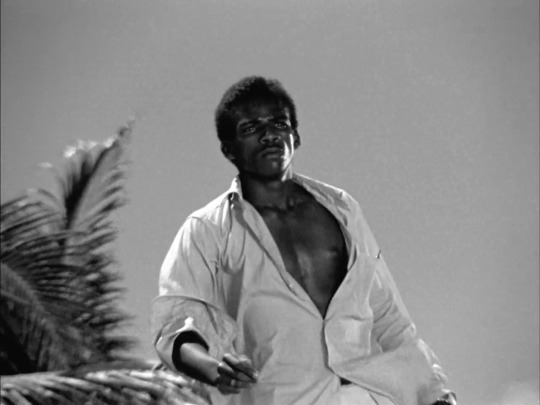


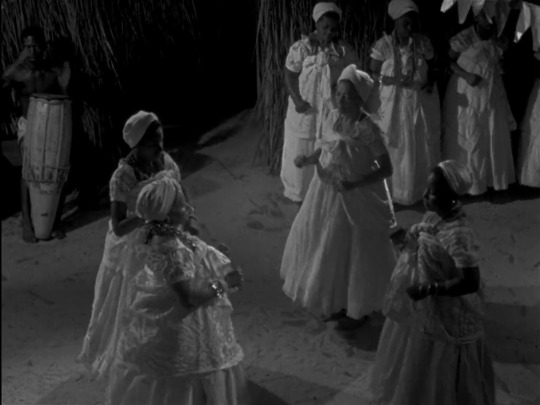

Barravento (1962)
Directed by Glauber Rocha
Cinematography by Tony Rabatony
#art#art history#artists on tumblr#aesthetic#classical art#arte#classic art#movie#film#pelicula#brazil#brasil#glauber rocha#Rocha#brazilian artists#brazilian politics#brazilian aesthetic#brazilian art#brazilian movie#brazilian music#Brazilian film#arte latinoamericano#latin american art#cinema#cinematography#cine latinoamericano#cinema novo#1960s#1960s movies#1960s films
10 notes
·
View notes
Text
Second Class of my State, Law and Autoritarism in Brasil between 1935 and 1945 Short Course 🇧🇷
It was great obviously - in this class we focussed on the leader that usually shows up to start a authoritarian state and why people fall for that
#brasil#brazilian studyblr#100 days of studying#100dop#academic#academic validation#college life#college student#exams#student#study#studyblr#history#brazilian history#brazilian politics
6 notes
·
View notes
Text
oh my god i could probably talk abt this forever and i literally wont shut up about it until the world cup rolls around but do u guys wanna know abt the covert coup they tried to stage 2day
#ok so basically bols*naro n his allies were already fearing his loss right. bc they know lula is a popular leftist leader here#little bit of background lula rose to high ranking political office through populism. that means his main focus when in power r the masses#lower classes and socially oppressed groups like black ppl women the Gays™ etc#he was the first ever president to rly look at our country's northeast region and do something for them#historically the northeast is the poorest most discriminated against region. poverty is a great concern there#they annually suffer bc of droughts and they're the part of the country nearly the whole rest is xenophobic towards#i'd say rlly only the north region isnt so xenophobic towards them bc theyre almostttt there but#the south and southeast are the worst. im talking most whitened populations who descend from europeans n think they're better#just bc they're the richer regions too. the midwest comes close too in terms of xenophobia but literally who cares abt them. anyways#bc of this history the northeast region has a history of preferring left-wing leaders esp from pt - lula's party#in the 1st round of elections earlier this month lula won the majority of votes in that region - as expected. bols*naro spectacularly lost#after that he went on to publicly state during a live stream - yes that is how our now soon-to-be FORMER president communicated with us -#that the only reason lula won there is bc the illiteracy rates were higher. basically implying they didnt vote for him bc theyre uneducated#which is v obviously a lie. 7 out of 10 perfect scores in enem - our national highschool exams - came from that region so. yea theyre NOT#uneducated they just never bought into bols*naro's bullshit like the rest of the country did. and he knew that#so fast forward to today. free public transportation on election days is a right to every brazilian citizen#a lot of northeastern people depend on buses to get to the polling places. theyre most notably the region where this happens the most#the chief of the federal highway police is a known public supporter of blsnr. the frp announced they'd be having several traffic blitzes#during election day - that's illegal. keeping ppl from voting or making their journey 2 polling places more difficult is an electoral crime#the supreme electoral court ruled against this. the frp chief then released a statement basically saying yea idc i'll still do this#and 2day they did. several traffic blitzes were set up across the country but guess who took the bigger hit? northeastern voters#roughly HALF of the operations were set up in that region alone - the other half was p evenly distributed between the remaining 4 REGIONS#the northeast suffered roughly 5x more than other regions in voter suppression bc of this. n we already know why#yall know whats the funniest part of this? he still lost 💀#so yea thats basically how blsnr n his lackeys tried 2 overthrow a democratic decision b4 it was even made so they wouldnt lose their power#n when i say that was an illegal move i mean that department of the federal police literally never cared abt that before#n blsnr had already tried to suspend free fare across the country - to keep poor people from voting - during the 1st AND 2nd rounds#he failed so his frp supporters tried to step in. they were legally and directly prohibited from doing so and still went ahead w it#also several northeastern voters posted videos online of federal agents keeping the buses from circulating#and innumerous accounts of them trying to coerce and constrain voters into revealing their voting intentions - another crime
7 notes
·
View notes
Photo







"Instead of Bolsonaro, a group representing diverse segments of society performed the role of presenting Lula with the presidential sash atop the ramp of the presidential palace. Across the sea of people standing before the palace, supporters stretched a massive Brazilian flag over their heads."
#Brasil#Lula Presidente#Lula#it's HISTORY it's POETRY#Politics#Brazilian Politics#tumblr let my post appear in the tags for once
2 notes
·
View notes
Text

Pedagogy of the Oppressed, Paulo Freire
Arguing that 'education is freedom', Paulo Freire's radical international classic contends that traditional teaching styles keep the poor powerless by treating them as passive, silent recipients of knowledge. Grounded in Freire's own experience teaching impoverished and illiterate students in his native Brazil and over the world, this pioneering book instead suggests that through co-operation, dialogue and critical thinking, every human being can develop a sense of self and fulfil their right to be heard.
(goatshedpress)
30th anniversary edition, trans. Myra Bergman Ramos:
https://envs.ucsc.edu/internships/internship-readings/freire-pedagogy-of-the-oppressed.pdf
#paulo freire#pedagogy of the oppressed#myra bergman ramos#70s#history resource#philosophy resource#politics resource#brazilian philosophy#brazilian politics#brazilian history#brazilian writing
0 notes
Text
There’s this sentiment in central Brazil about how tacky it is that southern Brazilians identify as German/Italian or some other European nationality because our ancestors came from these places.
A few things should be noted, that Brazil is an artificial country “made up” by colonial elites educated in Coimbra in Portugal (we lacked local elites like those that broke up the former Spanish colonies) whose territory was enforced multiple times by force (to cite a few: Ragamuffin War, Canudos war, Islamic slave revolts in 19th century northeast...), and that its culture was thus artificially fabricated by republican officers and soldiers after they couped the monarchy in 1889 (the national flag, the anthem, the worship of bandeirantes/portuguese conquistadores, the martyrdom of Tiradentes, member of an independence movement of slave owners, as a republican hero).
In the depopulated south, after distributing land to European immigrants, the Brazilian government enforced Portuguese and, at times, repressed local customs and languages. The south of Brazil was a “self-governing colony” in the models of East Coast U.S., Australia and Argentina, since there was nothing of interest here for colonizing nations that encouraged them to put in the effort to meddle in local affairs to redirect wealth to the central government (like it was done in Mexico by Spain, or say in Jamaica by England). Colonists were left to their own device, but were still taxed and required to “be Brazilian” by the government. In marriage and birth records, foreign names were more often than not “lusitanized” by government clerks, stripped of their original identity (imagine American public servants rewrote every Jose Herrero as John Smith).
In the U.S., it’s common for citizens to identify first with the state they’re from. When you ask an American where they live, they’ll tell you their state, not their country (being proud to be “American” is mostly reserved to patriots). Maybe this stems from Americans seeing their country as the “main character” in the world so to speak, or maybe it also stems from more autonomous local governance. In countries as large as the U.S., Brazil and China, the more local government is the better, because the central government is preoccupied with its own issues, which in a large, bureaucratic country can’t possibly be the interests of most people, since the population is far too fragmented (say, if 40 million people live in the state of São Paulo, that’s still only 20% of Brazil’s population; not a majority by any margin. If São Paulo were the national capital, which it is not).
In Brazil, identifying with one’s own state first occurs mostly in the southern region, which encompasses 3 federal subdivisions of 27. Being anything other than “Brazilian” is weird and sounds arrogant to central and northern Brazilians. The exception would be historically marginalized cultures in the northeast, but not because leftists (the main supporters pro-northeastern movements) support higher local governance, but because being a northeastern supremacist* is the moral thing to do now (and i’m not disagreeing, but I’d wager the cognitive process for these people to arrive at the decision to be a northeastern supremacist comes from the fact it’s moral, and not something else that should make it moral. It’s backwards). The northeastern “cangaceiro” is not entirely different from the southern “gaúcho” (rough country men), yet only one is romanticized by central Brazilians these days. It used to be that both were ignored.
(*I like this post, but I’m not really sure what I meant by this, I don’t think Brazilian liberals are pushing for northeastern supremacy in reality, however the end result seems to me this idea that anything in northeastern culture is worthy of praise just because it’s from there)
So I think identifying with country first in large countries is a sign of weak local culture and identity, and that it’s a bad thing because the nation’s interests never align with the local interests. The same is not true in e.g. the Netherlands. Southern Brazil may be onto something in having a stronger local culture, if it’s a natural process in self-governing states (independent or otherwise) or states with a self-governing mentality to look after your own interests first. Brazilian liberals selectively praise certain local cultures in detriment of others, and if you’re not part of these certain cultures, any other local identity than Brazilian is not valid (or at least not encouraged, shunned).
All this to say, I don’t really think i’m being racist or thinking myself superior to the rest of Brazil because I like the fact my great-great-grandmother was born in Italy (it being that more southern Brazilians identify with their Italian heritage, so it’s an element of southern culture in Brazil), or because I feel a sense of connection to the place she was born. Because I imagine her life there and the struggles she went through in her life until she settled here. It inspires me and makes me proud. But to say I’m proud of my Italian heritage in Brazil carries racist connotations in some circles, at least on the leftist side of things. However, unlike southern separatists and racists in Brazil, I think native and black people helped shaped my state into what it is today, and I’m quite proud to say it is the most diverse state in the Southern region of Brazil.
I do identify as a leftist myself. Brazilian leftism was born in the south from worker rights movements in the only self-governing colony in the country. The fact that the South is so close to being Brazil’s most politically conservative region nowadays says a few things about the decline of worker movements and the Left in Brazil. The south would not abandon the left for nothing. But I hope for better days, not only in my state although in my state first of all, but in all of Brazil.
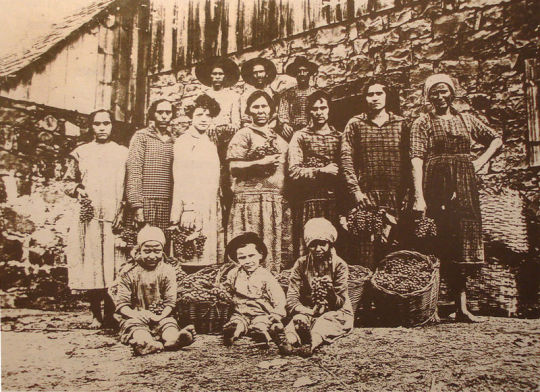
(Italian settler family in 19th century Southern Brazil.)
#politics#culture#history#colonialism#maybe it's envy idk#i do think a lot of central brazilian resentment towards the south is envy#because we arrived where they are first#and they don't want us to have it#envy is human so i don't judge it#i think it's our fault anyway that we couldn't keep hold of our momentum in development to be the wealthiest region in brazil#for as long as we're able to#we couldn't tackle what made us better#and maybe racism was a part of it#as in thinking we're inherently better and missing the fact there was a practical explanation why we were better#and make use of it#but no and now our failure is evident for the entire country to see and poke fun at us because we're so racist#but i digress#i acknowledge my state is bankrupt and i'm still proud of my ancestry#and it is my opinion that brazil has authoritarian roots and even now in the flowering of our democracy these roots show#in common sense shared by many brazilians
0 notes
Text
Lula dismays relatives of dictatorship’s victims by ignoring coup anniversary
Brazil’s president has nixed commemorations of the 1964 coup, possibly to avoid irking the military as senior officers facing jail for allegedly conspiring to stop Lula taking power after 2022 election
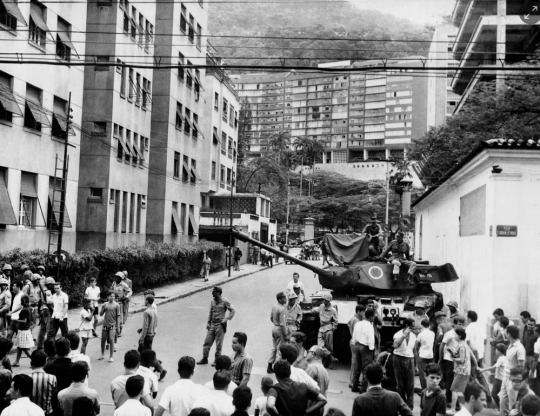
Relatives of the victims of Brazil’s brutal two-decade dictatorship have voiced anger and dismay over President Luiz Inácio Lula da Silva’s reported decision to block official remembrance events marking the 60th anniversary of the 1964 military coup d’état.
Activists had hoped the leftist’s government would mark the 31 March 2024 anniversary of that power-grab with a series of memorials honouring the thousands who were killed, disappeared or tortured by the 1964-85 regime.
The human rights minister, Silvio Almeida, had planned a ceremony and an awareness campaign with the slogan: “Without remembrance there is no future.”
But Lula reportedly scuppered those plans by giving explicit orders against such commemorations. The decision was seemingly intended to avoid irking military chiefs at a time when several senior military figures are facing jail for allegedly conspiring to stop Lula taking power after his 2022 election. That alleged plot culminated in the failed 8 January 2023 uprising, when Bolsonaro backers stormed the presidential palace, congress and supreme court in Brasília.
Continue reading.
#brazil#brazilian politics#politics#democracy#luiz inacio lula da silva#history#mod nise da silveira#image description in alt
14 notes
·
View notes
Text
Allusionist 172. A Brief History of Brazilian Portuguese | The Allusionist
“The myths, or the received wisdom, about Portuguese language in Brazil is that, of course we know we speak a very different version of the language, but this has always been explained to us as maybe perhaps a defect of sorts?” says linguist and translator Caetano Galindo, author of Latim em Pó, a history of Brazilian Portuguese. “You look deeper into things and you find you have to wrap your…

View On WordPress
0 notes
Text
Today is the day brazilian became a republic and to ceoebrate it I'll do something my ancestors were problably trying to stop having to do: explain brazilian history to gringos.
Beforhand in gringo is not a slur. It's used to define non-latinos, specifically the white ones and I don't think a slur can be used to refer to an ethinical marjority.
Anyway: my point here is to explain how the country of Brazil choose the wrong date to celebrate the democracy. So here it goes:
The first is today. Now of course not being a monarchy is a good thing. I'm not one of those weirdos who think the Braganças were great and everyrhing started to go wrong when we sended DP2 in a no return cruise to France. They sucked - DP2 less than his deadbeat dad but still - and becoming a democracy is definitivaly the way to go. But it's a lie.
The moviment that ended the brazilian short lived monarchy was controlled by the elites, a fight for democracy without any participation of the people wich is very contraditory, not only that but what they really institutioned was not a true democracy but an oligarquy with a fancy costume. Elections were decided by fear and manipulation to keep the candidates of this oligarquy winning. They divided in two partys and alternated in power from year to year until Getúlio Vargas decided he was done with it and became a ditactor because of course he did.
My pitch is that instead of celebrating a phony republic from 1889 we celebrate a real one for 1984. The end of the Diretas Já moviment and the end of the militar ditactorship with the first elections hold by the people. It was not perfect because god forbid things go well on brazilian politics but it was a genuine effort of the people who brought a real democracy. A fair one. A democracy were we can still win against a president with military and paramilitary support simply by voting. So we should celebrate the end of the Diretas Já in april instead of november's oligarquy.
#brazil#brazilian history#brazilian democracy#brazilian republic#lemon does nerd shit#political nerd shit#brazilian politics#ig
1 note
·
View note
Text
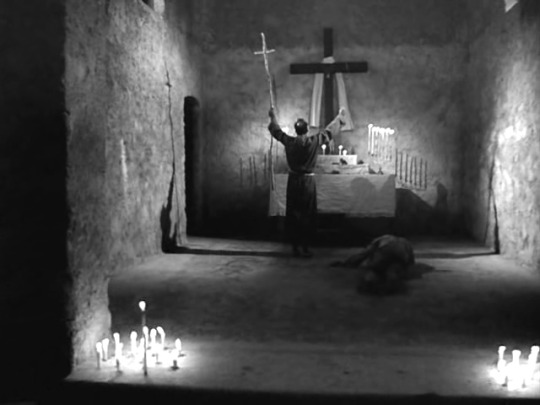




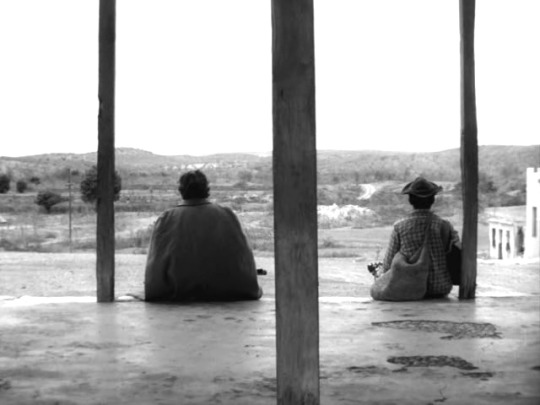

Deus e o Diabo na terra do sol [Black God, White Devil] (1962)
Directed by Glauber Rocha
Cinematography by Waldemar Lima
#art#art history#artists on tumblr#aesthetic#classical art#arte#classic art#film stills#independent film#films#cinema#cinematography#brazilian art#brazilian aesthetic#brazilian politics#brazil#brasil#brazilian movie#brazilian film#cinema Novo#arte latinoamericano#film#movie#glauber rocha#cine#cine latinoamericano#1960#60s art#60's art#60s
7 notes
·
View notes
Text
The history of Solarpunk

Okay, I guess this has to be said, because the people will always claim the same wrong thing: No, Solarpunk did not "start out as an aesthetic". Jesus, where the hell does this claim even come from? Like, honestly, I am asking.
Solarpunk started out as a genre, that yes, did also include design elements, but also literary elements. A vaguely defined literary genre, but a genre never the less.
And I am not even talking about those early books that we today also claim under the Solarpunk umbrella. So, no, I am not talking about Ursula K. LeGuin, even though she definitely was a big influence on the genre.
The actual history of Solarpunk goes something like that: In the late 1990s and early 2000s the term "Ecopunk" was coined, which was used to refer to books that kinda fit into the Cyberpunk genre umbrella, but were more focused on ecological themes. This was less focused on the "high tech, high life" mantra that Solarpunk ended up with, but it was SciFi stories, that were focused on people interacting with the environment. Often set to a backdrop of environmental apocalypse. Now, other than Solarpunk just a bit later, this genre never got that well defined (especially with Solarpunk kinda taking over the role). As such there is only a handful of things that ever officially called themselves Ecopunk.
At the same time, though, the same sort of thought was picked up in the Brazilian science fiction scene, where the idea was further developed. Both artistically, where it got a lot of influence from the Amazofuturism movement, but also as an ideology. In this there were the ideas from Ecopunk as the "scifi in the ecological collaps" in there, but also the idea of "scifi with technology that allows us to live within the changing world/allows us to live more in harmony with nature".
Now, we do not really know who came up with the idea of naming this "Solarpunk". From all I can find the earliest mention of the term "Solarpunk" that is still online today is in this article from the Blog Republic of Bees. But given the way the blogger talks about it, it is clear there was some vague definition of the genre before it.
These days it is kinda argued about whether that title originally arose in Brazil or in the Anglosphere. But it seems very likely that the term was coined between 2006 and 2008, coming either out of the Brazilian movement around Ecopunk or out of the English Steampunk movement (specifically the literary branch of the Steampunk genre).
In the following years it was thrown around for a bit (there is an archived Wired article from 2009, that mentions the term once, as well as one other article), but for the moment there was not a lot happening in this regard.
Until 2012, when the Brazilian Solarpunk movement really started to bloom and at the same time in Italy Commando Jugendstil made their appearance. In 2012 in Brazil the anthology "Solarpunk: Histórias ecológicas e fantásticas em um mundo sustentável" was released (that did get an English translation not too long ago) establishing some groundwork for the genre. And Commando Jugendstil, who describe themselves as both a "Communication Project" and an "Art Movement", started to work on Solarpunk in Italy. Now, Commando Jugendstil is a bit more complicated than just one or the other. As they very much were a big influence on some of the aesthetic concepts, but also were releasing short stories and did some actual punky political action within Italy.
And all of that was happening in 2012, where the term really started to take off.
And only after this, in 2014, Solarpunk became this aesthetic we know today, when a (now defuct) tumblr blog started posting photos, artworks and other aesthetical things under the caption of Solarpunk. Especially as it was the first time the term was widely used within the Anglosphere.
Undoubtedly: This was probably how most people first learned of Solarpunk... But it was not how Solarpunk started. So, please stop spreading that myth.
The reason this bothers me so much is, that it so widely ignores how this movement definitely has its roots within Latin America and specifically Brazil. Instead this myth basically tries to claim Solarpunk as a thing that fully and completely originated within the anglosphere. Which is just is not.
And yes, there was artistic aspects to that early Solarpunk movement, too. But also a literary and political aspectt. That is not something that was put onto a term that was originally an aesthetic - but rather it was something that was there from the very beginning.
Again: There has been an artistic and aesthetic aspect in Solarpunk from the very beginning, yes. But there has been a literary and political aspect in it the entire time, too. And trying to divorce Solarpunk from those things is just wrong and also... kinda misses the point.
So, please. Just stop claiming that entire "it has been an aesthetic first" thing. Solarpunk is a genre of fiction, it is a political movement, just as much as it is an artistic movement. Always has been. And there has always been punk in it. So, please, stop acting as if Solarpunk is just "pretty artistic vibes". It is not.
Thanks for coming to my TED Talk, I guess.

#solarpunk#solarpunk aesthetic#solarpunk fiction#political movement#history#history of solarpunk#amazofuturismus#put the punk back in solarpunk#scifi#science fiction#clifi#climate fiction#ecopunk
3K notes
·
View notes
Text
inspired by @is-the-post-reliable , i decided to make a research blog on an almost impulse bc I've been wanting to do something like this but never did bc I wasn't in the mood
so, basically, like that blog I'll too try to tell if a post here on tumblr is true or not
keep in mind that I won't do politics bc I'm very likely not from that place. yes I could do research but god. I feel like I need to do a whole history knowledge to start to know about the politics in there and I don't think a quick and probably shallow research will be sufficient.
that said, the only politics i'll be talking about is brazilian politics
stealing ITPR rating system
RELIABLE - Entirely accurate, supported by reliable sources.
MOSTLY RELIABLE - Generally accurate, but may be slightly misleading (ie by omitting relevant contradictory information), or may contain a minor error.
PARTIALLY RELIABLE - Includes some reliable information, but also includes errors.
UNRELIABLE - Misinformation. May include some small amounts of factual information, but is mostly unreliable, or the overall impression is misleading/incorrect.
I also rate things as TBC (To Be Confirmed) when I feel I do not have enough reliable information to rate a post as reliable or not reliable.
#not research#tagging that blog as an attempt do draw attention to myself#btw im that anon that asked about wanting to make a blog like yours if u still remember that#anyway im also gonna force myself to talk and learn about my country#intro post#pinned post
413 notes
·
View notes